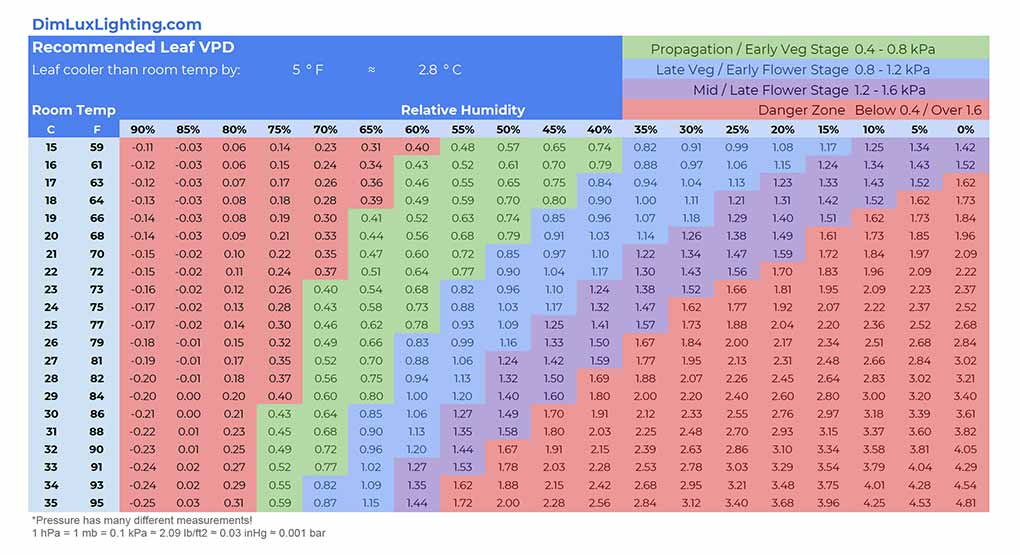- Joined
- Feb 14, 2018
- Messages
- 3,110
- Reputation
- 431
- Reaction score
- 10,019
- Points
- 0
- Currently Smoking
- La Buena Hierba Panama Haze
@Waira -- should have known it would be you that would post about VPD.
I was searching for info and found this, now I have a question:
I always knew that humidity was an important factor in buds getting you-know-what.
But I was still just thinking in terms of RH % numbers.
I see a lot of people maybe getting RH of 70% during flowering, and getting all worried.
Then, for ex. a couple of years ago, I had RH of literally 85% every day for a month,
and it was only after 3 weeks that the you-know-what appeared.
So I thought why are people worried about just 70%.
But, if I get this VPD thing right, it's not just the RH %, right??
If I had a low temp during flowering, then maybe 70% could be really bad,
but at higher temps, it would actually need a higher RH % to have the same problem.
E.g. from the chart at the top, 15C at RH 75% gives VPD 4.2,
and this would be equivalent to about, 30C, RH 90%, VPD 4.2.
Is that correct?
This seems to make sense, because while I get high RH, higher than many here, easily up to 80% at night,
my temps are also hotter than most, maybe 28C-30C at night, so that 80% RH isn't so dangerous.

Vapor Pressure Deficit VPD Calculator - Dimlux Lighting - The Best Grow Lights
Vapor Pressure DeficitCalculator Calculate both Room VPD and Leaf VPD automatically Just enter the value below to generate the VPD values for your room and your plants. You’ll need to know the room’s temperature, relative humidity, and the plant’s temperature. We recommend calibrating your...
It's a combination of humidity, ambient temperature, and leaf surface temperature. You need an IR thermometer at the least to measure leaf surface temperature to give you your temperature offset.
You're looking at the kpa which is 0.42kpa for what you are talking about. The
